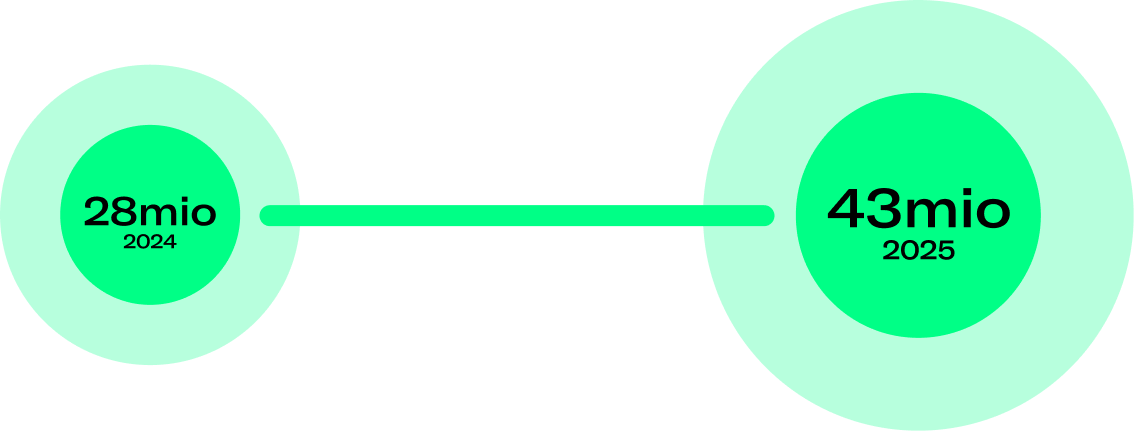
Adapting to the changing business world is crucial for staying competitive. The shift economy, which includes flexible work arrangements and digital notice boards and platforms, is reshaping industries and bringing new opportunities and challenges. Freelance workers play a major role in transforming how we work and access services.
In this article, you'll find out why it's important for businesses to grasp the significance of the shift economy and freelance workers. Our insights are based on data analysis and information from the European Council.
The size of the shift economy in Europe:
Recent data shows that more people in Europe are choosing flexible work arrangements, creating a pool of skilled professionals available for freelance positions through digital notice boards and online platforms. According to the Council of the European Union, over 28 million people in the EU currently work through online platforms, and this number is expected to reach 43 million by 2025. The revenue generated from the shift economy has also grown significantly, with estimates showing an increase of over 14 billion euros.

At Temper, we aim to fulfil the requirements of the expanding shift economy and assist businesses and freelancers. We have a wide range of over 100,000 registered extra-earners throughout Europe and the UK, providing more than 40 various job types in 7 sectors, including logistics, hospitality, retail, and construction.
Who is the next-gen worker? The freelancer profile:
Understanding the changes in how people work and the rise of a new generation of workers is important for businesses. According to our data, the average freelancer is between 18 and 40 years old, with an average age of 23. While there are slightly more male freelancers than females, freelancers come from different backgrounds. Some work as students or have side jobs to earn extra money, while others have chosen freelancing as their career. These trends are similar to data from the European Union, which shows that most freelancers are predominantly male, have completed higher education, and see freelancing as a way to earn additional income.
Regarding where work is happening, Europe is leading the way in the freelance economy. Countries like the Netherlands, the United Kingdom, and Germany are at the forefront of this trend.
Retaining and engaging talent
As the shift economy expands, businesses must address talent management challenges. In fact, 42% of European businesses consider this issue to be important.
Through Temper, clients can optimise and organise a pool of freelance workers via a ‘flex pool’. Nearly 40% of clients currently active via Temper use Flexpools to supplement their current workforce or in addition to working with individual freelancers. Adding a flexible layer to an existing workforce can be the best solution. A flexible workforce allows for quick responses to changing demands; an on-demand workforce gives you full control over choosing the right person for a specific shift.
Into the future
As the shift economy continues to grow, impacting businesses, workers, and society. policymakers recognise the need to support its growth while safeguarding the rights and interests of those involved. By prioritising representation, fair treatment and social protection, businesses can ensure success for themselves and freelancers. Temper leads the way by offering freelance workers social benefits and fair treatment, including 100% social insurance coverage, liability and accident insurance, sick pay, pension savings opportunities, and competitive hourly rates.
The shift economy is here to stay. Businesses can thrive in this new work era by understanding the next generation of workers, proactively managing talent, prioritising fairness, and staying informed. Creating a sustainable and equitable future of work requires collaboration between us all.









